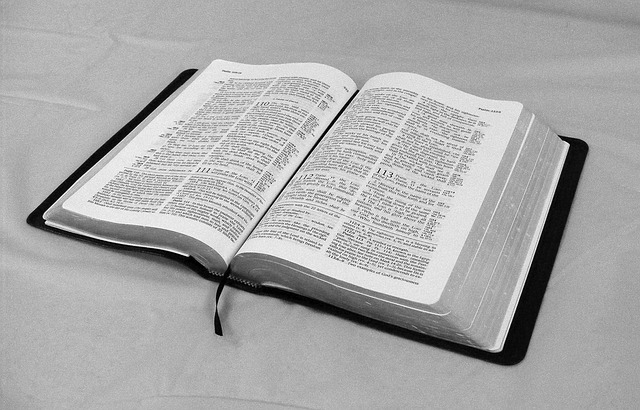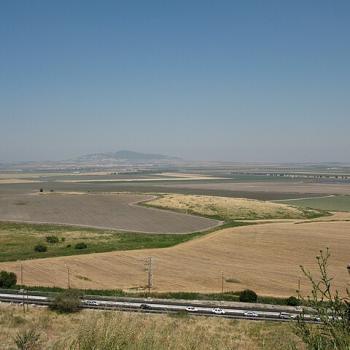
While most households in the US own a Bible, many Americans have read little or none of it. Daily reading of the Bible is even rarer. But regular reading offers valuable benefits. Obedience, discipline, preparation, and guidance, provide four reasons to read the Bible daily.
Bible Basics
People view the Bible as a book, but it is actually a book of books. Written over the span of 1500 years, the Bible collects sixty-six books within one cover. The word “Bible,” which derives from a Greek word meaning “the books,” emphasizes this makeup.
The books which the Bible contains are quite different. Their genres include poetry, prophecy, instructions, and stories, among others. Likewise, the topics addressed are those of interest to all humans such as money, marriage, authority, nature, power, sex, work, and children. The Gospels of Matthew, Mark, Luke, and John provide narratives about Jesus, detailing the final three years of His life, His death, and His resurrection. Such information offers compelling reading for His followers.
A Useful Tool
The Bible expressly addresses its usefulness. In 2 Timothy 3:16, Paul enumerates ways the Scripture can help believers—teaching, correcting, rebuking, and training in righteousness. Since God inspired all Scripture, is it surprising reading His world would be of benefit? And because the Bible is God’s word to us, why wouldn’t His followers want to read what the Creator of the world has to say?
Why Don’t People Read The Bible?
Various reasons exist why people don’t, or say they don’t, read the Bible. Lack of access to a Bible is not one of those reasons. According to the American Bible Society, 87% of American households own a Bible. In fact, the average household has three. Even those who don’t own a Bible can access the text free online.
Yet, according to results released in April 2017 by Lifeway Research, more than half of Americans, 53% to be exact, have read little of the Bible. Why this lack of reading a book either available in their own home, free online, or through a library? The top two reasons given are not prioritizing it (27%) or being too busy (15%).

Reading As Obedience
A good reason to read the Bible daily is obedience to God. Reading His words was an activity He directed, and believers should comply with that directive.
When Joshua took leadership over the Israelites following Moses’ death, God told the new leader what to do with His word, the law He gave Moses. Specifically, He instructed: “Keep this Book of the Law always on your lips; meditate on it day and night, so that you may be careful to do everything written in it.” God’s children cannot follow what He has said without reading the Bible, becoming familiar with it, and staying familiar with it by regular reading.
Psalm 119, the longest Psalm, focuses on God’s word and confirms the need to read the Bible consistently. The psalmist assures God that he will not neglect His word. He hides the word in his heart and meditates on God’s word. The psalmist recounts God’s word verbally, delights in God’s decrees, and asks to be taught God’s laws He asks God to give him understanding. The psalmist’s activities all necessarily involve reading God’s word. And only occasionally doing so would not propel him toward his goal of not neglecting God’s word.
Even the New Testament supports regular Bible reading. Jesus told His followers to seek first the kingdom of God. No better source exists for learning about that kingdom than Jesus’ own words found in the Gospels. Jesus left His followers with the Great Commission when He left Earth. How can they “Go” and spread His word if they do not know what it is? Reading the Bible equips them to obey that directive.
Reading To Develop Discipline
Obedience to God isn’t the only reason to read the Bible. Developing discipline results from daily Bible reading. Discipline is essential to the Christian life. Are believers disciplined enough to flee from the Devil, to love their neighbor, to take up their cross daily? Disciplining themselves to accomplish daily Bible reading will encourage them to be disciplined in other facets of their faith life such as ongoing prayer with God, regular attendance at worship, and tithing (and beyond).
The discipline required for daily Bible reading resonates with the top reason given in the Lifeway Research results. People don’t read the Bible simply because they don’t prioritize that activity. How can it be prioritized? Schedule it. Setting a specific time to read God’s word is essential. Failing to plan is planning to fail. Make an appointment with your Bible, and then keep it.

Reading As Preparation
Accepting Jesus is merely the beginning of a believer’s faith journey. When people travel to some place new, they typically consult maps or guidebooks. The Bible helps prepare Christians for their faith journey. Reading about Jesus’ time on earth and His words to His followers prepares them for what they will face. And what will that be? Jesus faced opposition, rejection, and ridicule. Jesus even pointed out His followers had to pick up their cross daily. The faith walk will be a tough one.
Although Jesus made clear Christians would face trouble while on earth, He provided reassurance to His followers. They could take heart in the fact He had overcome the world. Bible readers are prepared to do life because they are fully aware it will be challenging but that Jesus will be with them.
Reading As Guidance
Guidance is another of four reasons to read the Bible daily. While believers understand generally things will work out well in the end per Romans 8:28, they crave God’s guidance in specific circumstances. One way to obtain His guidance is to read His words to them. The psalmist appreciated this guidance when he likened God’s word to a lamp to his feet and a light showing him the path.
Proverbs, for example, gives practical advice such as responding to anger with a “soft” word. In the New Testament, James urges believers not simply to hear the word, but to put it into practice.

Four Reasons To Read The Bible Daily
Why read the Bible daily? This activity exhibits obedience to God’s direction, helps believers develop discipline in their faith life, prepares them for their faith journey, and offers guidance in the day-to-day challenges life brings. The goal is not to have a Bible, but to use it regularly. If believers are not reading the Bible daily, aren’t they saying it isn’t a priority or that they are too busy for God?














